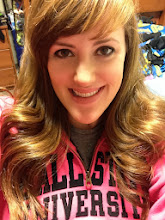The vernacular and dialect of this novel varies with the location. I find it amusing how when the Americans travel, they do not keep their American ways so much, but they adapt to their surroundings. Many of the men speak French and Spanish, which is completely different from most Americans today who only know English. I wish America was more diverse in its cultural aspect, but Americans especially today are proud to be American and only that. Funny how everyone is an immigrant and yet everyone has a problem with the recent immigration.
While the expatriates travel France, they speak French and endulge in the luxurities of French cuisine and especially alcoholic beverages.
"Che mala fortuna! Che mala fortuna!" [page 39]
This phrase is exclaimed when the Americans get to a hotel, and Hemingway throws in some geographical description of the Ospedale Maggiore in Milano, the Padiglione Ponte, and Padiglione Zonda.
When they travel to Spain, not as many of them are fluent in Spanish, but they meet bullfighters, workers, and women of Spanish descent who help them get by on what is necessary.
While the expatriates travel France, they speak French and endulge in the luxurities of French cuisine and especially alcoholic beverages.
"Che mala fortuna! Che mala fortuna!" [page 39]
This phrase is exclaimed when the Americans get to a hotel, and Hemingway throws in some geographical description of the Ospedale Maggiore in Milano, the Padiglione Ponte, and Padiglione Zonda.
When they travel to Spain, not as many of them are fluent in Spanish, but they meet bullfighters, workers, and women of Spanish descent who help them get by on what is necessary.


August 22, 2010 at 11:01 PM
check